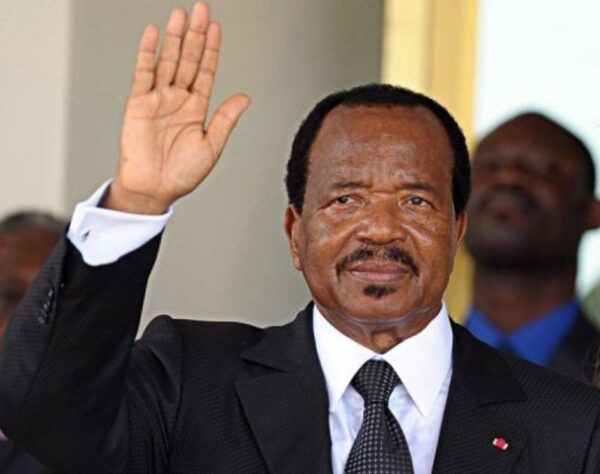It is now official. Cameroonian President Paul Biya, in power for over 42 years, will run for an eighth term at the helm of the country. The announcement was made on Sunday, July 13, 2025, via a post on the official X (formerly Twitter) account of the head of state.
At 92 years old, Paul Biya intends to extend his rule, already one of the longest in the world. He claims to be responding to “urgent calls” from the ten regions of Cameroon and the diaspora. To justify his choice, the nonagenarian states that he wants to “ensure the security and well-being of the daughters and sons of Cameroon,” which is “the sacred mission to which I have devoted my time and energy since I assumed the highest office.”
Positioning himself as a guarantor of national stability, he says he is “determined to continue” his action, despite an “increasingly challenging international environment.” He also assures that the situation of young people and women will be at the center of his priorities for the upcoming term he is seeking. “Together, there is no challenge we cannot overcome. The best is yet to come,” he concludes.
An expected and controversial announcement
This candidacy does not come as a surprise to observers. However, it immediately reignites the debate on longevity in power in Central Africa. Paul Biya, who came to power in 1982, has become over the decades an emblematic figure of “perpetual power” in a region marked by recurring presidencies for life.
With over four decades at the helm of Cameroon, President Biya is currently the second oldest head of state in the world still in office. Despite his somewhat advanced age, his message is optimistic, positioning himself as the only one capable of ensuring order and national cohesion in the face of the current “acute challenges.”
Challenges
The presidential election, scheduled for October 12, 2025, is expected to be crucial. Cameroon continues to face multiple tensions: instability in the Anglophone regions, economic pressures, youth unemployment, and growing expectations for political change.
The promise of a better future, emphasized in his declaration, comes at a time when a large segment of the Cameroonian youth is increasingly expressing its desire for change and alternation.
Mastered communication, but far from unanimity
The method of announcement via a digital platform illustrates the government’s desire to control its message and address Cameroonians directly. However, on social media, the news immediately sparked a wave of reactions, ranging from loyal support to citizen concern and popular outrage.
In a country where democratic alternation has never taken place at the highest level of the state, this new candidacy could exacerbate tensions between the government and the opposition, just months before what promises to be a tense campaign.
Towards a test of democratic truth?
While several countries in West and Central Africa are facing sensitive political transitions – sometimes by force, as in Mali or Chad – Paul Biya’s candidacy revives the debate on term limits, leaders’ age, and the role of youth in governance.
If he manages to be re-elected, Paul Biya would finish his eighth term at the age of 99. A symbolic figure, which raises questions about both the management capabilities of a young country and the democratic credibility of such a system.
Next step: the electoral calendar
The Cameroonian Constitutional Council is expected to confirm the modalities of the election in the coming days. The still scattered opposition is being closely watched. All eyes are on emerging figures who could embody change, if the political space and conditions of fairness allow it.


